XCOM: Chimera Squad features a cast of 11 unique characters, each with their own squad roles and abilities. Some perform extremely well in all situations, while others may need a bit of work. This guide helps you determine which are the best characters, as well as their ratings and the ideal skills to pick.
Note: For more information, check out our XCOM: Chimera Squad guides and features hub.
XCOM: Chimera Squad – Recruiting additional squadmates and gearing up
Character recruitment in XCOM: Chimera Squad works differently compared to previous titles in the series. The 11 available soldiers are unique in their own way, and they aren’t just cannon fodder. Outside of the four default characters you get — Verge, Godmother, Terminal, and Cherub — your other squadmates are unlocked as you progress. You’re given three choices and you can only pick one each time (seen above).
You can only get up to four additional soldiers as you’re investigating City 31’s hostile factions. Likewise, you won’t be able to grab all troopers in a single playthrough, so you might end up replaying the game from scratch. However, starting a new game and skipping the tutorial does let you choose your starting squad members:
Making your picks
While each character in XCOM: Chimera Squad does have unique quirks and functions in a team, the order that you get them and the faction you’re investigating will play an important role in how well they’ll perform. For instance, psionically gifted Verge does well against most biological targets (Progeny faction), but the tech expert Patchwork will be invaluable when fighting androids and mechs (Sacred Coil faction).
Additionally, the order that you choose/unlock them will determine just how useful they’d be in the long run. Getting a character late might mean not being able to level them up fully in time for the endgame. For example, picking Blueblood early and leveling him up gives you access to several awesome perks; picking him late means he won’t be able to reach his true potential.
Training, skill choices, and epic items
As for the character skills and abilities, you’ll need to choose between two skills when you reach the field agent and senior agent ranks (level 2 and level 4). You’ll also be presented with new training upgrades once you reach the special agent and principal agent ranks (level 3 and 5), and these have permanent effects. The special agent training upgrade will provide some decent bonuses, but the principal agent assignment might be a game-changer. You can refer to our training upgrades guide for more info.
With regard to weapons, your units in XCOM: Chimera Squad follow simple loadouts based on five types:
- Pistols – Blueblood, Cherub
- Shotguns – Godmother, Axiom, Claymore
- Submachine Guns – Terminal, Torque, Shelter
- Assault Rifles – Verge, Patchwork
- Melee (no upgrades or epic variant) – Zephyr
Assembly research projects that provide enhanced and master-crafted benefits apply to all characters who use that type of weapon. Similarly, certain epic weapons can truly synergize well with a character’s skills and abilities.
Character ratings: The best characters and their skills and abilities
To simplify the description of character skills and abilities in XCOM: Chimera Squad, I’ve shortened some terms:
- “T” stands for the skill’s cooldown and the number of turns.
- “M” means the ability can only be used once each mission.
- “P” means it’s a passive skill.
- If a skill’s description has none of the above, it means it has no cooldowns and can be activated freely each turn.
Note: The article has been updated to reflect additional findings after a second playthrough. I chose Torque, Claymore, Shelter, and Terminal as my starting team while playing on impossible difficulty.
S-Tier
These are the characters that can completely turn the tide of battle and function well in almost any situation. You’ll likely want to bring them along when you’re facing the toughest missions in XCOM: Chimera Squad.
Terminal
Skills and abilities:
- Default ability 1: Safeguard – Send the GREMLIN drone to heal one teammate, including Terminal, for 4 HP; cures environmental effects; doesn’t automatically end turn.
- Default ability 2: Hack Door – Allows you to hack a locked door during Breach Mode (P).
- Deputy agent: Refresh – Drone heals all allies at their breach point (M).
- Field agent: Sustain – Enter stasis to prevent getting downed (M); or Pin Down – suppress a target without damaging them to delay their turn (T2).
- Special agent: Cooperation – Instantly allows a character to have a bonus action (T3).
- Senior agent: Armor System – Safeguard gives +1 armor (P); or Resilience – Terminal heals to full at the end of every encounter (P).
- Principal agent: Second Wind – Drone heals the entire squad, cures environmental effects, and stabilizes downed allies (M).
Training:
- Special agent: Unlock Potential – +1 utility item slot.
- Principal agent: Guardian – Overwatch triggers for multiple targets as long as ammo is available.
I’m actually tempted to make an S+ tier just for Terminal because of how useful she is in every encounter in XCOM: Chimera Squad. She can regularly heal your teammates each turn with Safeguard, making her a mainstay of your forces. If you have one mob left, you can stun or CC that enemy and have her cast her healing until everyone’s topped up and ready for the next encounter.
Her Second Wind ability is a lifesaver when a fight isn’t going your way, while Cooperation lets other characters get their attacks in. For instance, I usually have Terminal as the first breacher (so she has her turn before everyone else). I’ll cast Cooperation on Zephyr or Blueblood and have them take out opponents that are next in line to act. Then, Terminal finishes them off. The one who was affected by Cooperation then takes their regular turn.
As for skill picks, I went with Pin Down to help delay the attacks of dangerous enemies. I also chose Resilience so I don’t have to worry about healing Terminal if she’s low on health at the end of an encounter.
Blueblood
Skills and abilities:
- Default ability 1: Deadeye – A shot with an aim penalty but does increased damage.
- Default ability 2: Desperado – The standard pistol shot and Deadeye don’t end the turn if Blueblood still has actions remaining (P).
- Deputy agent: Lancer Shot – This shot during Breach Mode ignores all cover bonuses (M).
- Field agent: Warm Welcome – The first shot in each clip disorients the target (P); or Ever Vigilant – Automatically activate overwatch if the last action is spent moving, including when subduing foes or stabilizing teammates (P).
- Special agent: Phase Lance – Fires a shot in a straight line, ignoring all cover bonuses (T3).
- Senior agent: Fond Farewell – The last shot in each clip does double damage (P); or Cascade Lance – Phase Lance’s damage increases for every subsequent enemy it hits in a straight line (P).
- Principal agent: Faceoff – Fire your weapon at every enemy in your line-of-sight limited only by your ammo (M).
Training:
- Special agent: Unlock Potential – +15 crit chance.
- Principal agent: Free Reload – Reloading doesn’t cost action points.
Blueblood is truly an amazing character to have in XCOM: Chimera Squad. By default, he’s the only one who can fire twice each turn (as long as you don’t move around first), making him ideal to pick off low HP mobs. Much later, especially once you obtain the Artful Fathom epic weapon, you’ll be able to use the Lightning Hands skill to fire another shot that doesn’t cost action points. That’s three shots in a turn.
When you combine this with weapon mods such as scopes and extended mags, you’re looking at a soldier who can continuously land hits to eliminate hostiles before they can even attack. Alternatively, you can replace your extended mag with a laser sight, along with Talon Rounds (+crit). If you picked Fond Farewell, you can proc the double damage a few times each mission. Lastly, Blueblood’s training once he reaches principal agent rank makes reloading a free action.
Zephyr
Skills and abilities:
- Default ability 1: Crippling Blow – This melee attack can cause the disarm, disorient, stun, or root status effects. This will never miss, and it’ll trigger Momentum.
- Default ability 2: Momentum – Immune to root status effect and allows Zephyr to move after using Crippling Blow (P).
- Default ability 3: Fearless Advance – Rather than firing during Breach Mode, Zephyr runs straight to an enemy to attack and start the encounter next to them.
- Deputy agent: Parry – Instead of moving, you can choose to negate all damage from the next enemy attack.
- Field agent: Lockdown – Immediately kick an enemy that enters or attacks in melee range (P); or Pressure Point – Killing blows knock out enemies instead and gives +1 damage to attacks (P).
- Special agent: Crowd Control – Attack every enemy in a wide area with kicks and punches (T2).
- Senior agent: Moving Target – Subdue and Crowd Control create Momentum and Zephyr no longer triggers overwatch (P); or Vital Strike – Melee attacks ignore armor (P).
- Principal agent: Reaper – Downing an enemy with a melee attack lets you take another action and each subsequent melee attack has lower damage (T4).
Training:
- Special agent: Unlock Potential – +2 movement.
- Principal agent: High Impact – Crowd control will apply a random debuff to targets.
Zephyr is just insanely good thanks to her lightning-fast attacks and debuffing strikes. Imagine using Crippling Blow to go straight to a deadly target like a Praetorian or Andromedon, and subsequently stunning them. Her Crowd Control ability has massive coverage, and you’ll likely find two or three mobs to hit, dealing status effects to each one. The Reaper skill which you unlock much later is also amazing for clearing out rooms. She also shines with her Parry ability. Given that she’s spearheading the squad’s advance, she’ll present herself as a target, only for Parry to completely nullify the damage.
Zephyr’s DPS falls off towards the endgame since you can’t upgrade her Pangolin Gauntlets and many hostiles are already armored, but Vital Strike can help offset this. Speaking of the Pangolin Gauntlets, Breach Mode effects that disable weapons (ie. expends all ammo/requires a reload) won’t work on her. Feel free to assign her to those spots so that your other squadmates can continue shooting after Breach Mode.
Claymore
Skills and abilities:
- Default ability: Shrapnel Bomb – Throw an explosive that detonates after several turns; can be targetted to explode earlier; does not do damage through cover; does not end the turn if used as a first action.
- Deputy agent: Concussive Charge – Causes rupture effect on all targets near breach point (M1).
- Field agent: Fortitude – Immune to the effects of grenades and environmental hazards (P); or Improvised Explosives – Regenerates +1 charge for carried grenades at the end of each encounter (P)
- Special agent: Sticky Grenade – Throw a grenade that sticks to an enemy, making them run to a new location; grenade explodes when the enemy stops moving (T4).
- Senior agent: Heavy Shrapnel – Shrapnel Bomb now does damage through cover (P); or Impending Doom – Shrapnel Bomb causes rupture effect on targets within its blast radius after landing (P).
- Principal agent: Barrage – Both Shrapnel Bomb and Sticky Grenade do +1 damage and do not automatically end Claymore’s turn; Shrapnel Bomb can be used more than once per turn.
Training:
- Special agent: Unlock Potential – +1 armor.
- Principal agent: Heavy Ordnance – Grenade items gain +1 bonus use; affects both offensive and support grenades.
Do you like making things go boom? Then, Claymore is the perfect XCOM: Chimera Squad soldier for you. His skills early on are nothing to write home about, but he does become an integral part of the team once you reach the mid-game — this is after you’ve unlocked Improvised Explosives and Impending Doom. Once you also have Barrage and Heavy Ordnance, Claymore obliterates entire groups of enemies due to the synergy of his skills.
Let’s start with Shrapnel Bomb in the early-game. Yes, it has its uses, but, far too often, you’ll find yourself running out of action points or shotgun ammo to make the most out of your intricate setups. Once you do get the aforementioned skills, you can have this type of combo: Shrapnel Bomb (rupture a group of enemies) -> another Shrapnel Bomb (rupture another group of enemies) -> Frag Grenade (throw it next to the Shrapnel Bomb to detonate it and cause a chain explosion) -> another Frag Grenade (to do the same effect on another batch of mobs). Four actions in a single turn and all will likely have an AoE damage effect or debuff — what’s not to love?
Since Impending Doom causes rupture (increased damage taken), you can drop bosses and tougher opponents with ease. Your Heavy Ordnance training, which lets you carry extra grenades (both offensive and support types), also affects thrown items such as Motile Inducers (to give a teammate +2 actions). Then, your Improvised Explosives skill gives you another charge for the next encounter. How about that? Oh, and his Sticky Grenade ability is fun to use especially when a target blows up their own buddy — just watch out for mobs that might run directly towards civilians.
Torque
Skills and abilities:
- Default ability 1: Bind – A free action that lets Torque wrap herself around an enemy to do damage and cancel their turn; the enemy cannot be targetted by teammates.
- Default ability 2: Tongue Pull – Lash out with your tongue to pull an enemy or ally to melee range.
- Default ability 3: Poison Immunity – Torque is immune to poison effects (P).
- Default ability 4: Adaptable – Torque enter a room using ventilation shafts during Breach Mode (P).
- Deputy agent: Toxic Greeting – Torque spits venom to poison an enemy for 2 turns.
- Field agent: Tight Squeeze – Bind does more damage (P); or Hard Target – Torque gains extra movement on the first turn of an encounter and +10 dodge permanently (P).
- Special agent: Poison Spit – A venomous blast that deals damage and poisons all targets in an area (T3).
- Senior agent: Reinforced Scales – Gain +1 armor when a target is captured by Bind and don’t release Bind when taking damage (P); or Synthetic Venom – Bonus to crit against poisoned targets and heal at the end of your turn when standing in poison (P).
- Principal agent: Vicious Bite – Deals a lot of damage to an adjacent target while also applying poison (T3).
Training:
- Special agent: Unlock Potential – +1 mobility and +20 dodge.
- Principal agent: Tag Team – Using Tongue Pull on an ally grants them +1 AP.
Torque is a viper, and, like a certain professional wrestler, she can strike from “outta nowhere.” The reason for this is because of her surprising versatility.
Tongue Pull has a lot of range and will bring targets right next to you; it even triggers the overwatch of your teammates. Alternatively, you can use it to pull your allies to safety (ie. close to an evac point or out of an enemy’s sights). You could also do this for VIPs. When you follow up with Bind, you’re practically locking down a target and damaging them, and, if you picked Tight Squeeze, Bind will do 5 points of damage to an enemy.
Assuming you used Toxic Greeting as a Breach Mode action — which can be used for every encounter and not just once each mission — you’ll have poisoned your opponent as well. Coupled with Synthetic Venom to gain a crit bonus against poisoned targets, you’ll realize how amazing she is during a fight. You won’t even need to shoot because her venomous and snake-like abilities do the damage for you.
Another factor that sets her apart from all the other characters in XCOM: Chimera Squad is her dodge stat. She can get a whopping 90 dodge if you equip her with a Mach Weave armor mod and once you complete her Unlock Potential training. That means you’ll hardly get hit by anything barring a lucky shot or an AoE explosion.
A-Tier
While these characters aren’t as good as their S-tier counterparts, they’re still a great addition to your team, and they complement all others nicely enough.
Verge
Skills and abilities:
- Default ability 1: Neural Network – Psionic links on each enemy give Verge +10 aim (P).
- Default ability 2: Stupor – Stuns a target for a couple of actions; adds target to Neural Network.
- Default ability 3: Battle Madness – Causes hostile to go berserk and attack a nearby target; adds target to Neural Network.
- Deputy agent: Levitation – Removes cover effects and the alert or aggressive status during Breach Mode.
- Field agent: Crowdsource – Gain an additional +5 aim and +10 crit for each enemy in the Neural Network (P); or Collar – Enemies in the Neural Network are KO’d instead of getting killed (P).
- Special agent: Mindflay – Damage all enemies that are part of the Neural Network; KO’s enemies instead of killing them.
- Senior agent: Network Healing – Verge heals HP each turn depending on the number of enemies in the Neural Network (P); or Slam – Drops an enemy affected by Levitation and adds them to the Neural Network.
- Principal agent: Puppeteer – Mind controls all enemies in the Neural Network for a turn (M).
Training:
- Special agent: Unlock Potential – +1 movement and +15 dodge.
- Principal agent: Mind Lash – +1 damage to enemies in the Neural Network.
Verge uses brains over brawn; he’s a sectoid so his skills readily show this. He takes a while to get the ball rolling, but, once he does, he becomes a ridiculously good support character as long as you’ve got a lot of enemies linked to you via the Neural Network. Killed enemies get removed from this link, but KO’d ones still apply the effect (so equip Tranq Rounds on your teammates you want).
You can have one link already if you pick Slam (cast Levitation during Breach Mode and then let Slam happen once you start the actual phase). Cast Stupor to stun a dangerous enemy and/or Battle Madness to cause some chaos. If you picked Crowdsource, you’ll never miss your shots given all the hostiles linked to you; if you picked Collar, then the ones your shot at by allies will just get put to sleep.
Godmother
Skills and abilities:
- Default ability 1: Scattershot – Damage multiple targets in a frontal cone; costs 2 ammo.
- Deputy agent: Alpha Strike – Use this during Breach Mode so Godmother can have her turn earlier while also giving a free action point (M).
- Field agent: Last Stand – Instead of an attack killing her outright, Godmother is reduced to 1 HP and can act immediately afterward (M); or Flush – Does a zero damage attack to remove an enemy from cover.
- Special agent: Ventilate – A shot that’s guaranteed to hit and destroy the target’s cover; costs 3 ammo (T3).
- Senior agent: Close Combat Specialist – Take a reaction shot against enemies that get too close (P); or Untouchable – Downing an enemy will make the next enemy attack miss (P).
- Principal agent: Overtime – Gain +crit, +dodge, and an extra turn in 3 turns (M). The crit and dodge effects will be present the entire time, but the extra turn will only proc much later.
Training:
- Special agent: Unlock Potential – +1 mobility and +15 dodge.
- Principal agent: Step Up – Scoring kills grants a free reload action.
Godmother is a no-nonsense squad leader who’ll rush into the fray with her shotgun, and she’s quite good at it. Given how deadly shotguns are at close range, you’re going to be in the thick of the fighting, and I’d suggest using the Lonely Herald epic weapon to have the Run and Gun skill (allows you to use an action/shoot after dashing). Her Step Up skill from principal agent training even lets her reload freely after killing targets, making her ideal for straightforward room-clearing.
For skill picks, Last Stand is infinitely more useful than Flush since you’ll likely take a beating from other opponents. Close Combat Specialist, meanwhile, ensures that anyone who advances towards your position gets blasted in the face.
B-Tier
These are fairly decent characters that serve a unique purpose, and you’ll still be fine with them for the most part. However, you might go back to your top picks whenever you’re in a pinch.
Cherub
Skills and abilities:
- Default ability 1: Kinetic Shield – Shield yourself or an ally to negate an attack; gain a charge when the shield is destroyed.
- Default ability 2: Kinetic Shield Charge – You can have up to 3 charges, and you can use these to unleash improved skills (P).
- Default ability 3: Charged Bash – Use up all your charges to unleash a shield bash that creates damages enemies caught in a frontal cone.
- Deputy agent: Phalanx – Block all damage your teammates take at a breach point; gain a charge for each attack you block (M).
- Field agent: Generator – Gain a charge at the end of each encounter (P); or Guard – Gain +1 armor at the end of your turn and generate cover for friendlies (P).
- Special agent: Overload – Store up to 3 charges and gain bonus mobility (P).
- Senior agent: Recharge – If you use Charged Bash to KO an enemy, you’ll gain an extra charge (P); or Resonance Field -Using Kinetic Shield on an ally gives them +15 aim (P).
- Principal agent: Supercharge – Expends all charges to increase the squad’s weapon damage while placing a Holo-target effect on all enemies to improve aim (M).
Training:
- Special agent: Unlock Potential – +2 movement.
- Principal agent: Return Fire – Automatically fire at an enemy that shoots you.
Cherub is right there with you once you start XCOM: Chimera Squad‘s campaign and he’ll provide you with tanking benefits. You’ll probably keep him around for a lengthy period — until you get Zephyr, that is. She can already debuff enemies while tanking hits consistently, which makes using Cherub almost moot.
Although Cherub can provide a lot of defensive bonuses to your allies — and both Generator and Recharge are useful — he’s just not the best when it comes to pumping out the DPS. He requires a few more actions just to increase the damage of his bashes, and your pistol just won’t do the trick. Heck, if you found the Artful Fathom epic weapon, it’ll likely go to Blueblood instead. As such, if you’re running an extremely efficient room-clearing setup (ie. Terminal, Blueblood, Zephyr, and Godmother), Cherub won’t find a spot in your group.
Patchwork
Skills and abilities:
- Default ability 1: Chaining Jolt – GREMLIN drone attacks enemies for 4 damage; higher damage versus robots; damage chains to nearby enemies.
- Default ability 2: Hack Door – Allows you to hack a locked door during Breach Mode (P).
- Default ability 3: Reprogram – Drone hacks a robot combatant for three turns (T4 if the skill succeeds).
- Deputy agent: Combat Scanners – +15 squad aim at breach point (M).
- Field agent: Voltaic Arc – Drone shocks enemies that get too close to Patchwork (P); or Threat Recognition – Combat Scanners now has two uses each mission and gives +25 crit to allies at breach point (P).
- Special agent: Stasis Field – Places a stasis shield around a target (teammate, allied VIP, or enemy); unit in stasis can move, but they cannot attack (T2).
- Senior agent: Shock Therapy – Chaining Jolt disorients and can stun targets (P); or High Voltage – Chain lightning from Chaining Jolt or Voltaic Arc does extra damage (P).
- Principal agent: Capacitor Discharge – Casts lightning in a wide area which can stun all targets (M).
Training:
- Special agent: Unlock Potential – +1 utility item slot.
- Principal agent: Storm Generator – Increases the range of Chaining Jolt.
Patchwork does have some use thanks to her GREMLIN drone that always does 4 HP damage. Where she starts to shine, though, is toward the endgame or while fighting the Sacred Coil faction. Due to their penchant for using bots (androids and mechs), you’ll do more damage than your teammates per Chaining Jolt, and you can even Reprogram them to fight on your side. The Stasis Field, meanwhile, is helpful if an ally is in a pinch since you can prevent them from getting mauled while hostiles are on the attack. It can even be used during VIP missions so they can reach the extraction zone safely.
As for the skill choices, Voltaic Arc was almost a non-factor given how rare enemies would attempt to go near Patchwork (and you shouldn’t even be using her to push forward). However, Shock Therapy can help apply status effects to various targets.
Note: Patchwork was originally listed as a tier-A character. Unfortunately, she wasn’t too useful in my second playthrough when I recruited her after I had already eliminated the Sacred Coil faction. Without a lot of robotic mobs to electrocute, her DPS output (and hacking opportunities) significantly dropped.
C-Tier
Although the tier list is subjective and based on experience, these are the characters in XCOM: Chimera Squad that I simply wasn’t able to use with maximum efficiency. Far too often, better options ended up outshining them. You’re better off using them to complete spec ops or research projects.
Axiom
Skills and abilities:
- Default ability 1: Rage – Taking damage or using certain skills (Psych Up) increases Rage, which then increases the chance of applying status effects with melee attacks (Smash) or when breaching (Battering Ram). Higher Rage also causes Axiom to go Berserk and attack nearby targets (P).
- Default ability 2: Smash – Axiom does a ground pound on a single target with a chance to apply disorient, stun, or unconscious.
- Default ability 3: Psych Up – Increases Rage proactively.
- Deputy agent: Battering Ram – Rush through a door during Breach Mode; has a chance to panic enemies.
- Field agent: Aftershock – Smash does a small amount of damage to nearby targets; chance to apply status effects on these targets (P); or Shrug It Off – Chance to reduce damage from an attack to 1 HP.
- Special agent: Adrenal Surge – Smash and Psych Up no longer end the turn or have cooldowns (T4).
- Senior agent: Fear Factor – Smash can cause panic (P); or Regeneration – heal a bit of HP at the start of your turn (P).
- Principal agent: Quake – Slams the ground to do damage to nearby units and destroy cover (M).
Training:
- Special Agent: Unlock Potential – +1 movement and +1 armor.
- Principal Agent: Counterattack – Chance to counter any melee attacker, ignoring the damage at the same time.
I really wanted to like Axiom. He’s a muton brute, after all, and I found him one of the more intriguing new additions in XCOM: Chimera Squad. Unfortunately, I also found little to no use for him, and he ended up becoming probably the worst character in the game.
Smash ends your turn until you unlock Adrenal Surge (which has a long cooldown), but the aforementioned ability still doesn’t hit as hard. You might even get hit by an extremely damaging attack, too, and Shrug If Off is inconsistent in that regard. You can try to generate Rage by way of enemy fire, but that’s not always guaranteed, or you can use Psych Up. Sadly, the additional status effect chance from Rage isn’t as useful as, say, Zephyr’s Crippling Blow or Crowd Control. She already applies debuffs without fail and her attacks also won’t miss compared to Axiom’s Smash.
Axiom does get better once you complete his principal agent training to obtain the Counterattack perk; this allows him to attack an enemy who attempts to strike him. It’s just too bad that this may come a little too late in your playthrough. And, because it’ll only trigger when the enemy attacks you in melee range, it’s not going to help against long-range opponents.
Shelter
Skills and abilities:
- Default ability: Relocate – Swap positions with an enemy or ally; does not end turn.
- Deputy agent: Dazzle – Psionic blast that disorients enemies near breach point; targetted enemy during Breach Mode is disoriented for an extra turn (M1).
- Field agent: Temporal Shift – Relocate also delays the turn of a targetted enemy (P); or Distortion Field – Relocate gives Shelter and targetted ally +50 defense until their next turn (P).
- Special agent: Soulfire – Psionic attack that does guaranteed damage, ignoring cover and armor, while also delaying the target’s turn; can only target organic units (T2).
- Senior agent: Solace – Shelter and nearby allies are surrounded by an aura that prevents or cures mental effects (P); or Soul Storm – Soulfire heals Shelter for 50% of the damage dealt (P).
- Principal agent: Psi Fracture – Create a clone that can use Relocate and Soulfire (M1).
Training:
- Special agent: Unlock Potential – +2 mobility.
- Principal agent: Writhe – Drain the HP of a target in melee range to heal Shelter; usable by his Psi Fracture clone.
Shelter, for lack of a better term, is a weird character to use in XCOM: Chimera Squad. He just didn’t fit in with any of my team setups even after replaying the campaign.
His default ability, Relocate, is an oddity in that it’s next to useless until you obtain Temporal Shift. Even if Relocate could delay a target’s turn, other teammates already have their own skills and abilities that worked well enough. These include Terminal’s Pin Down, Zephyr’s Crippling Blow and Crowd Control, Torque’s Tongue Pull plus Bind combo, and Verge’s Stupor. Also, those skills don’t present the possibility of putting those characters in harm’s way. At the very least, his Dazzle skill is decent for Breach Mode.
As for Shelter’s Soulfire attack, it mostly does around 4 HP damage only. If you picked Soul Storm, you’re looking at a measly 2 HP getting healed. His Psi Fracture clone does add some extra “Soulfire-power,” but you get it so late that, by then, neither Shelter nor his clone (combined) can match the output of your teammates.
Lastly, if you chose Solace instead of Soul Fire, the psi-negation aura is almost laughably forgettable especially if other units are often moving around the map. It can help you if you’re facing off against The Progeny faction, but characters such as Claymore, Godmother, and Blueblood will have no issue eliminating those types of mobs anyway.
XCOM: Chimera Squad is available on Steam. For more information, check out our guides and features hub.

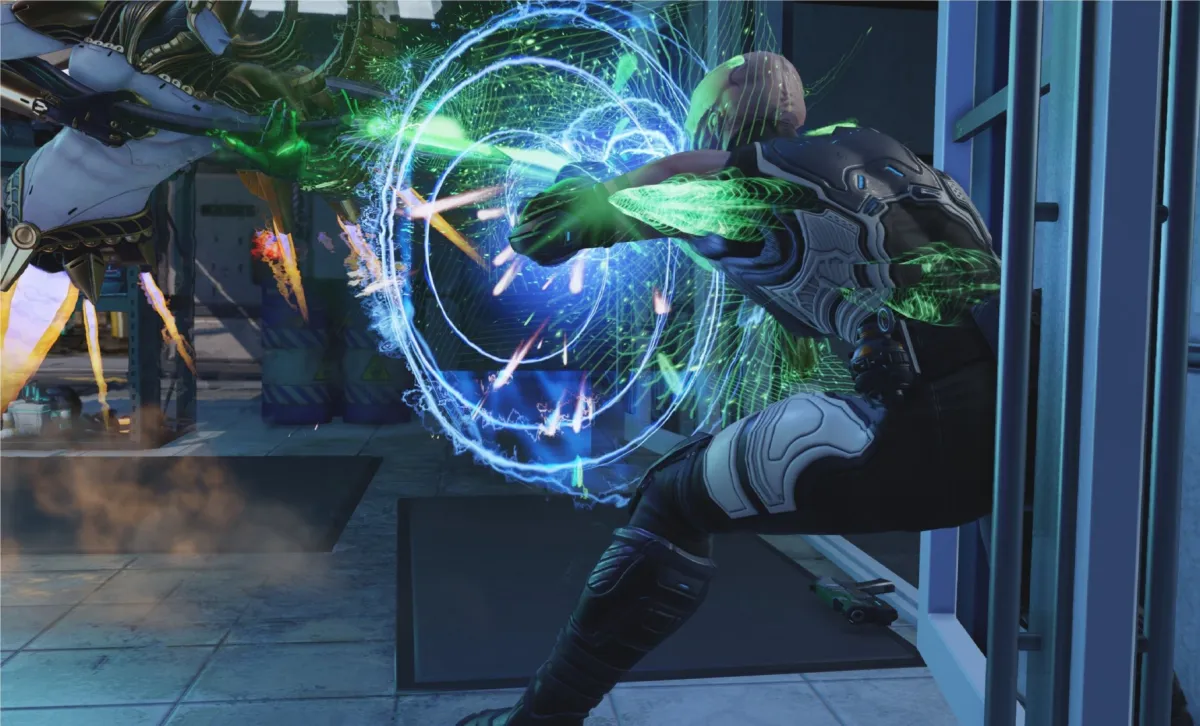
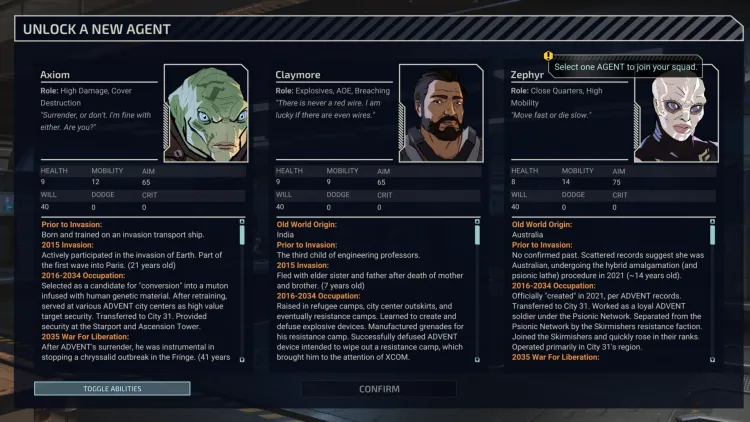
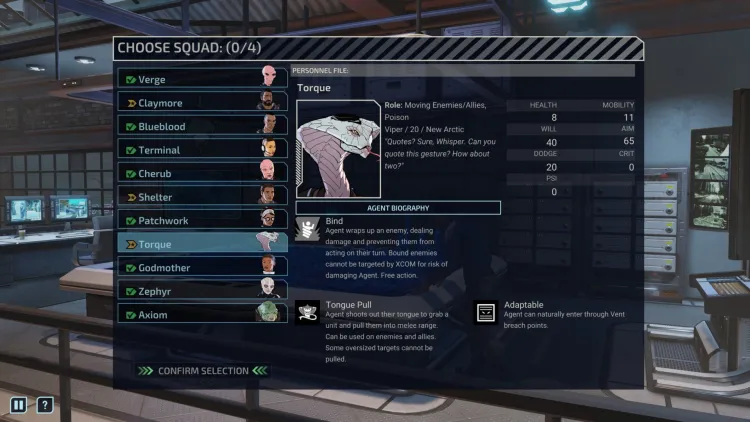
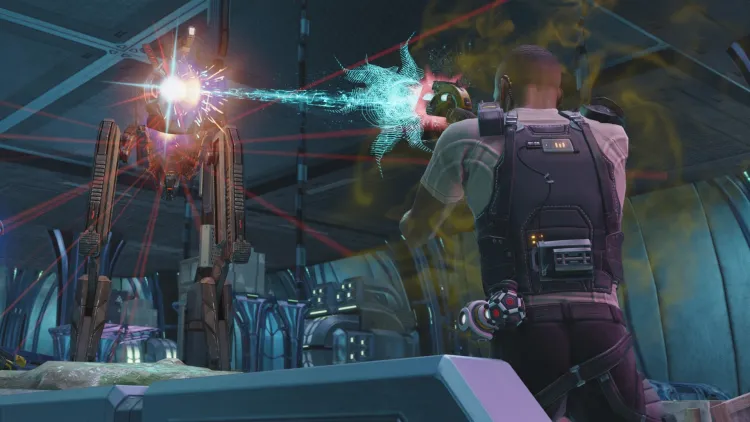
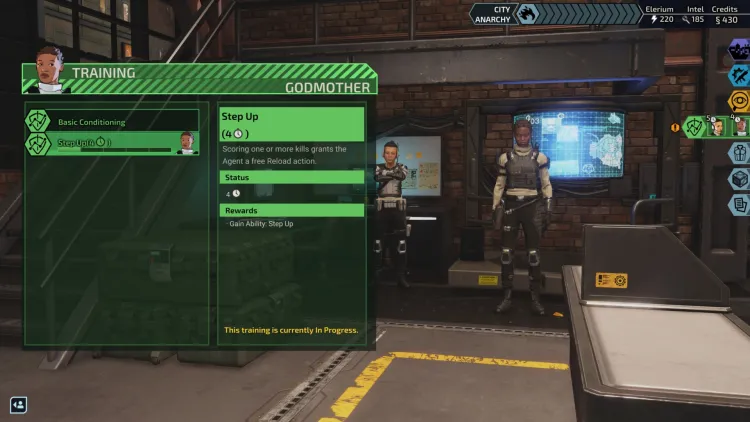
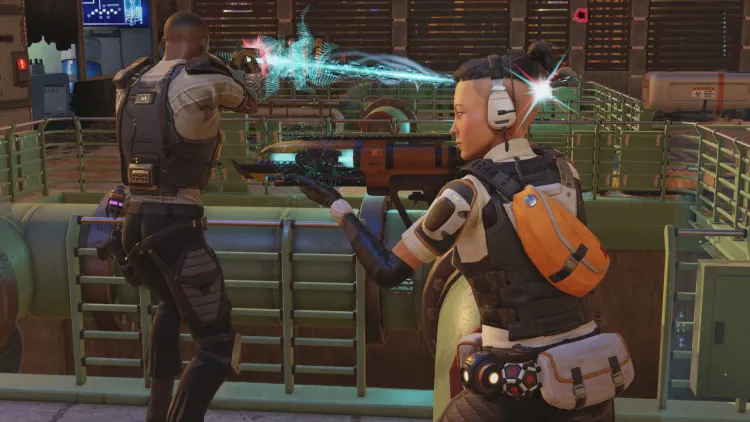
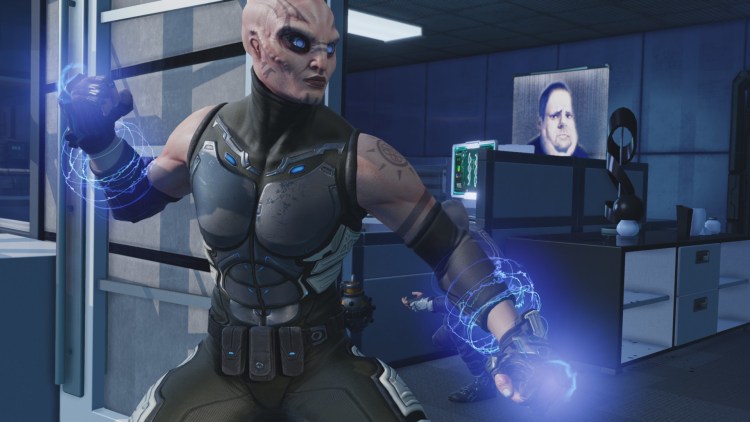
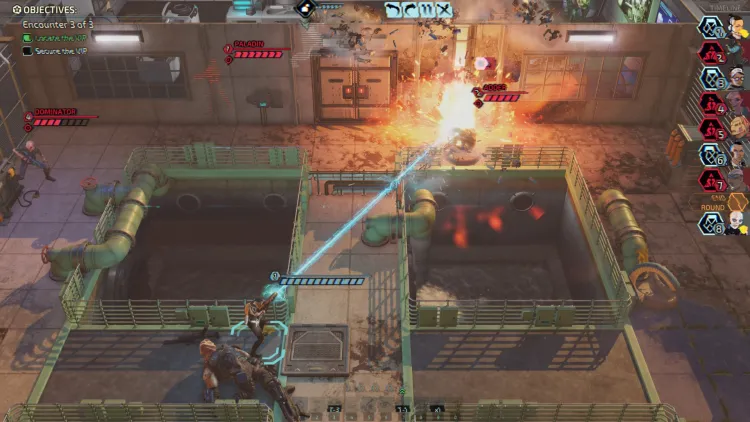
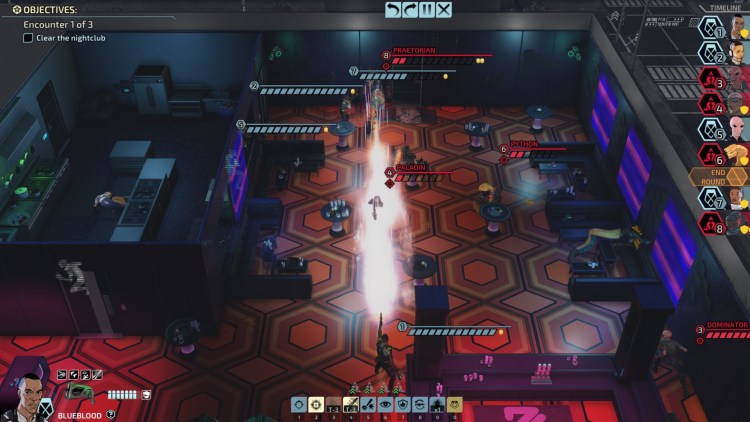
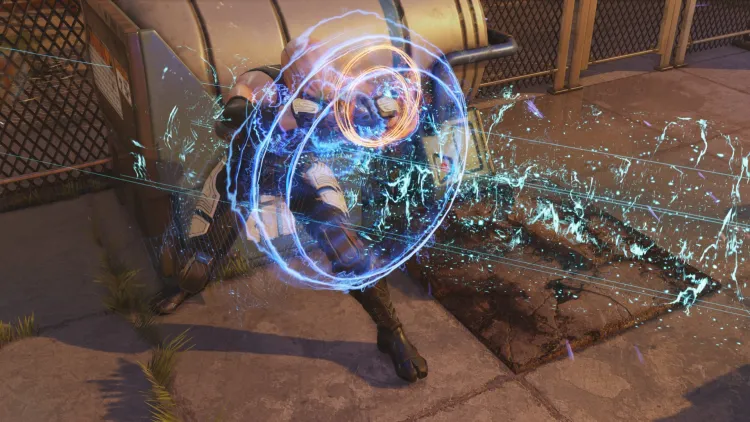
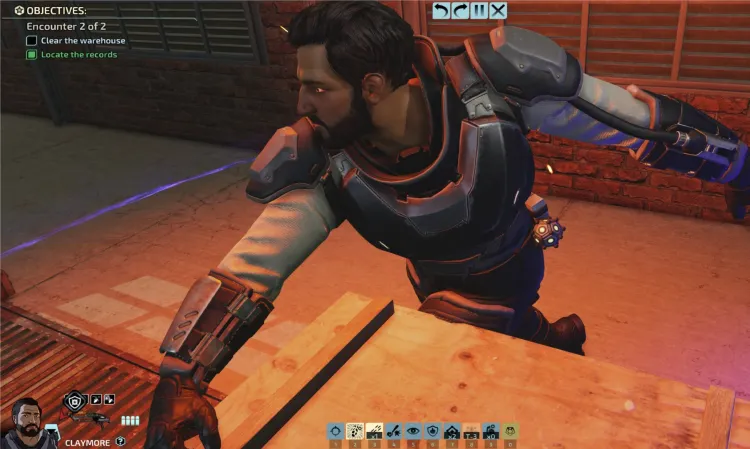
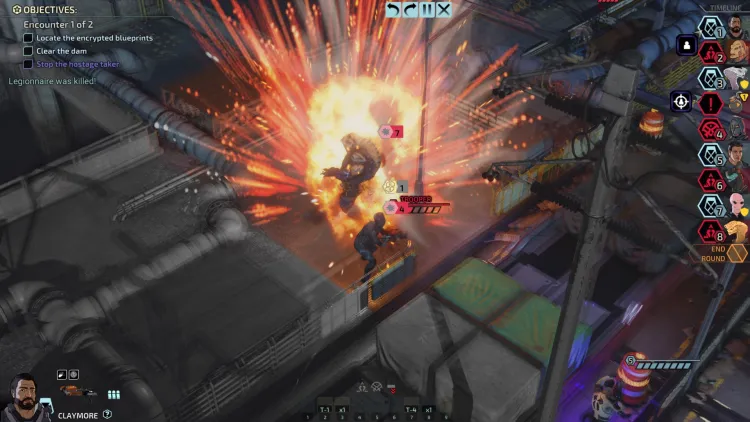
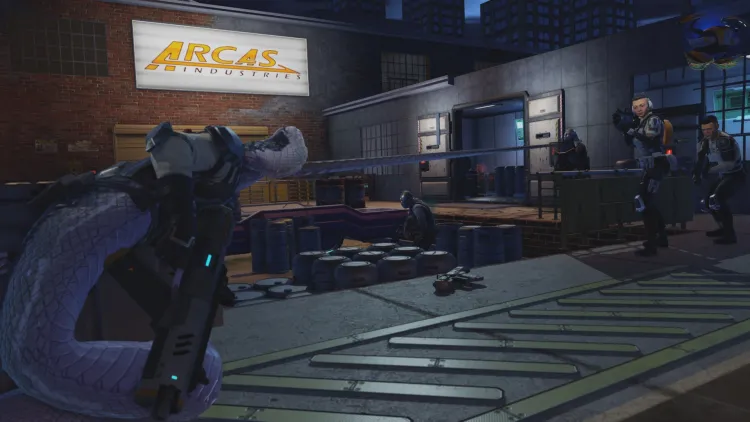
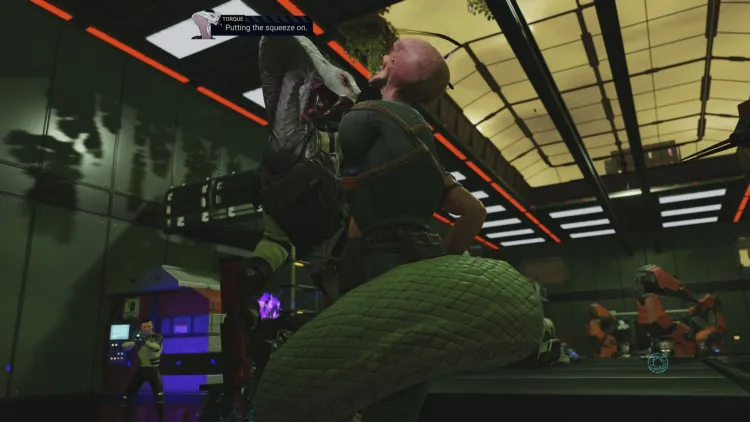
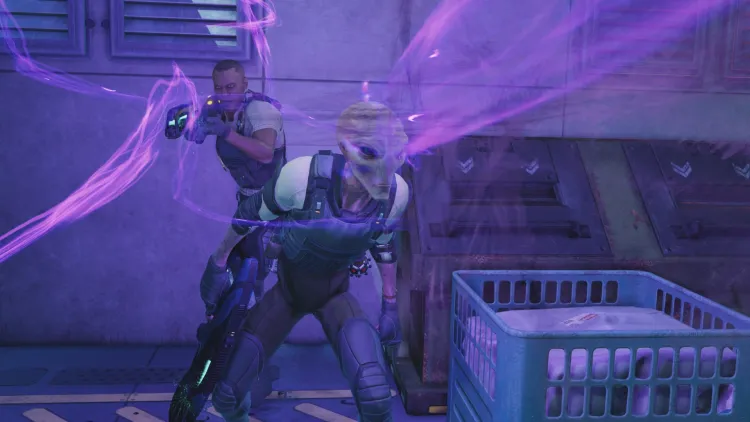
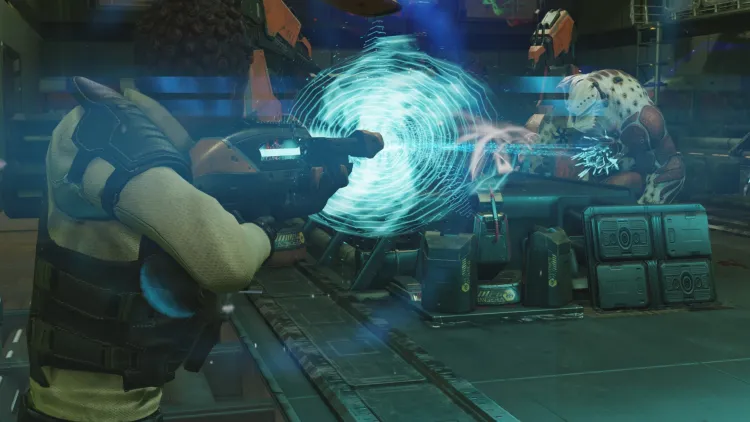
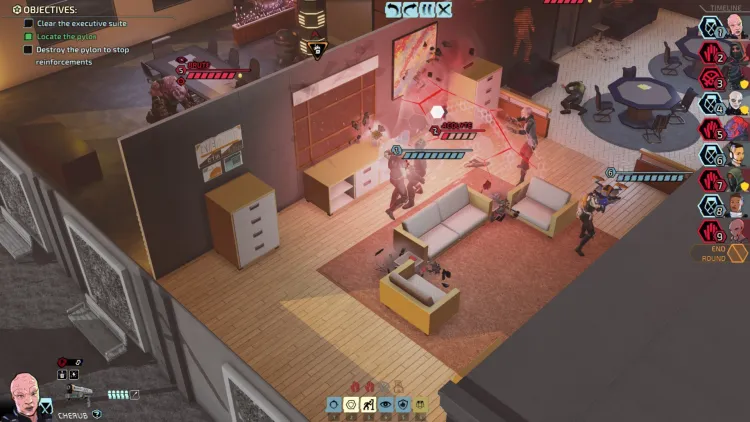
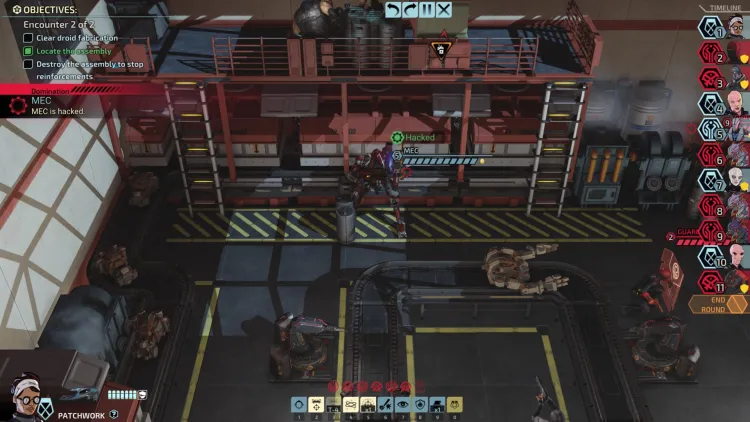
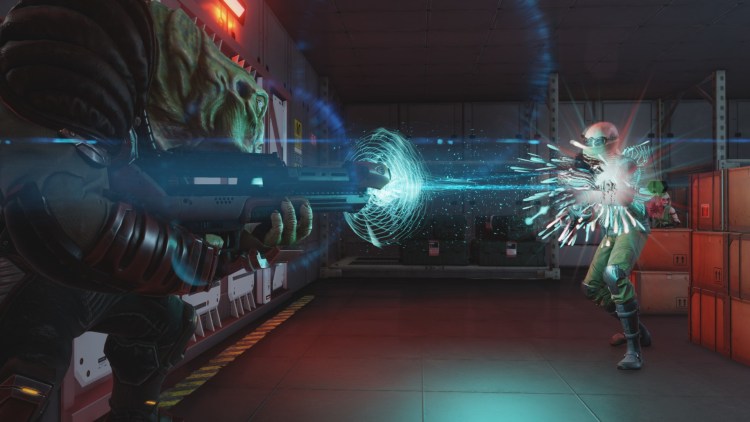
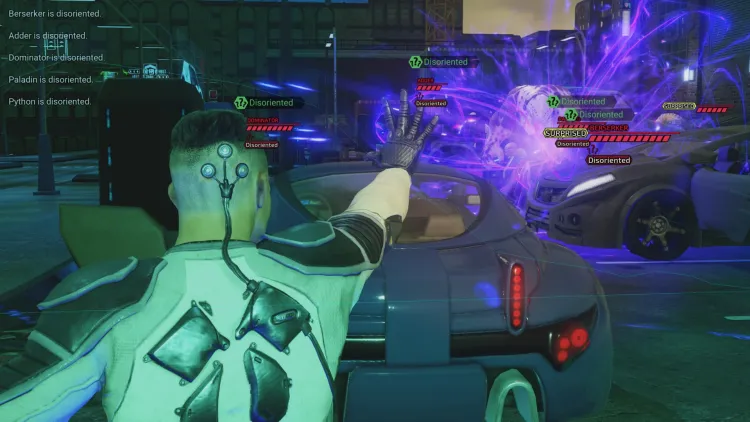
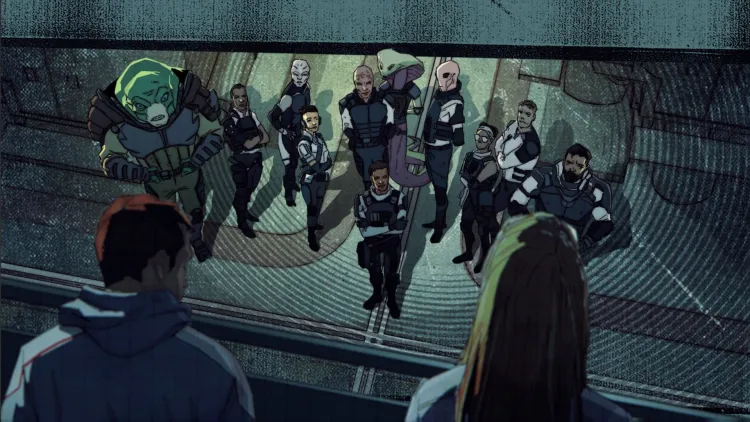
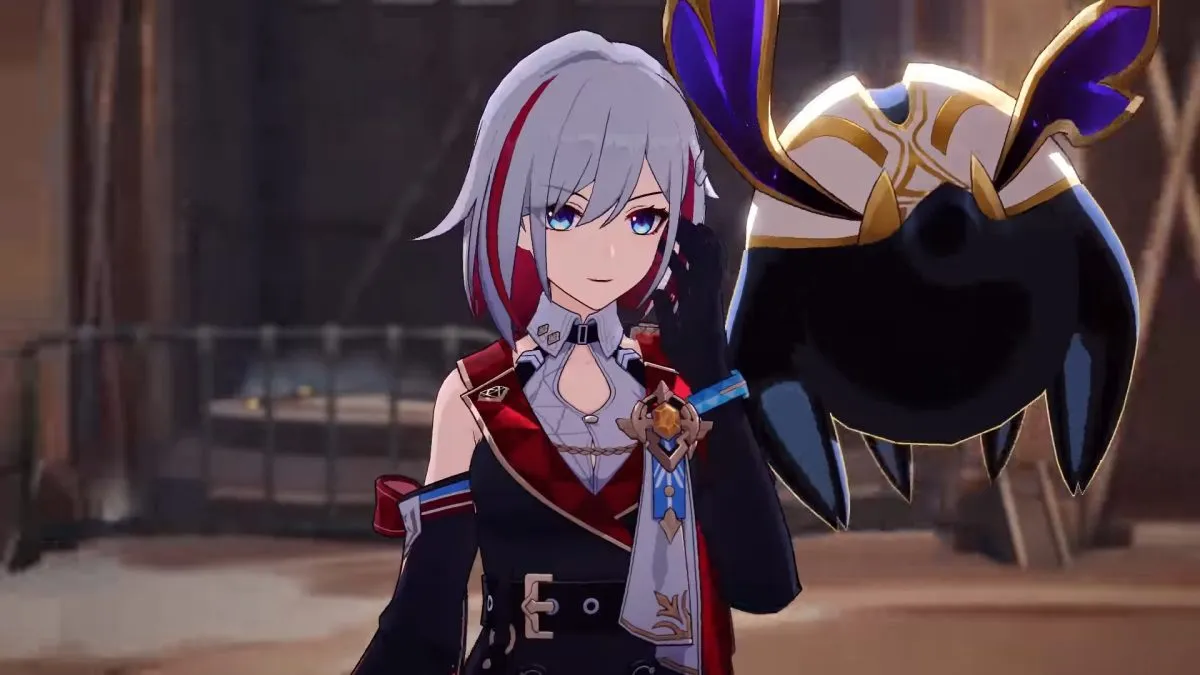

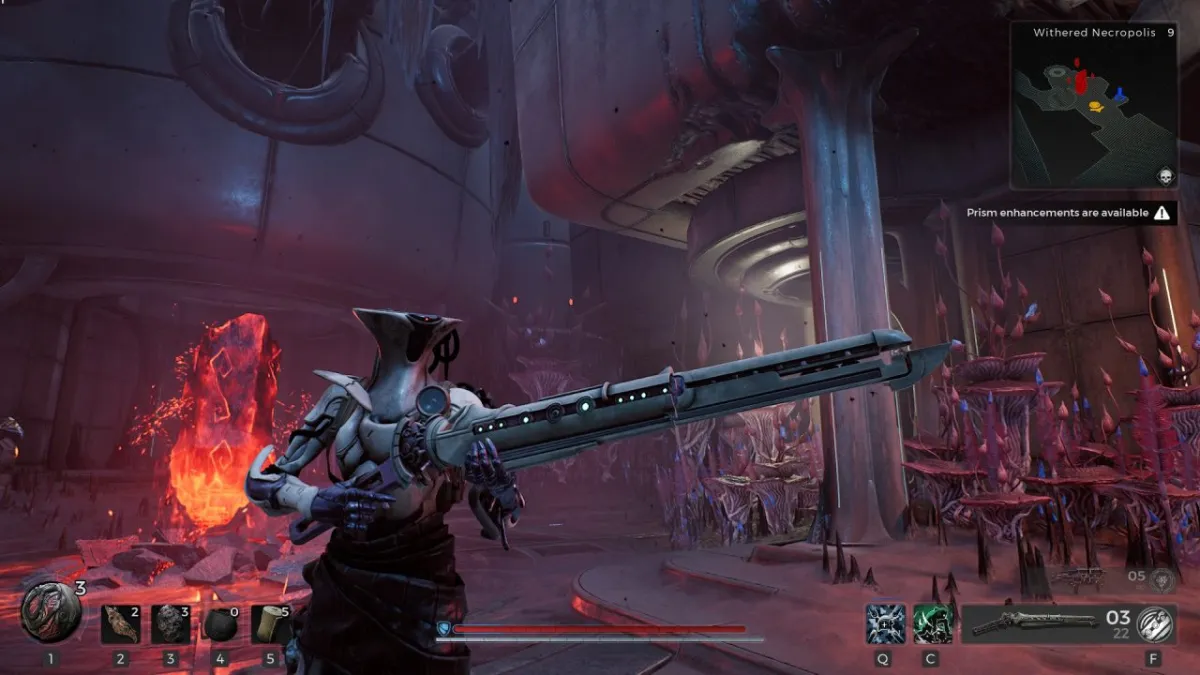

Published: Apr 27, 2020 01:50 am